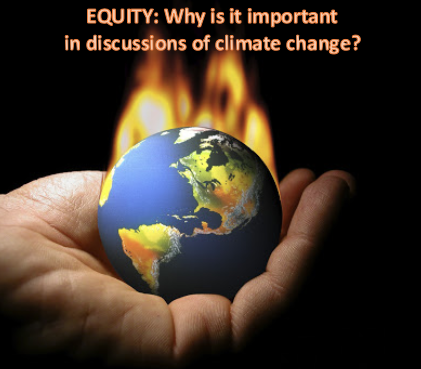
This contribution to our What’s on your mind? blog was written by our Outreach Coordinator Lisa DePaoli, who has studied humans and ecology for quite a long time and earned her Ph.D. in ecological anthropology:
The ways that humans are being impacted by climate change include extreme weather events such as wildfires and flooding, stresses to food-producing systems, the spread of infectious diseases, and negative impacts on biodiversity and wildlife, security, migration, and public goods such as water. In short, climate change impacts people’s health, livelihoods, and homes and other forms of property.
Furthermore, certain people are disproportionately affected by climate change, including low-income and minority populations and other vulnerable people who are at greater risk due to age, discrimination, health, and/or location. They may have less ability to move about, pay for damages, and rebound after setbacks. Communities of color and low-income communities face an increased vulnerability because of the compounded stresses of ongoing heat waves, poor air quality, flooding, and mental health stress.
People who are the most vulnerable to the effects of climate change are also those who are least responsible for causing it (for example, according to a study by Oxfam, the poorest 50 percent — about 3.5 billion people — contribute only 10 percent, while the richest 10 percent of people produce half of the planet’s individual-consumption-based fossil fuel emissions). Changes in weather patterns, sea level rise, and other impacts further exacerbate existing inequities. Therefore, we must integrate questions of justice in debates about the environment. Focusing on only one part of the problem, such as “jobs,” is like treating the symptom and ignoring the cause of this unequal effect (the underlying socio-economic factors of disadvantaged populations). Actions to address climate impacts and to reduce emissions should be considered in conjunction with broader equity issues involving livelihoods and a living wage, health, food security, and energy access. The wellbeing of people and communities must be at the core of climate action.
There is a lot of discussion of possible ways to address the problem of climate change. Unfortunately, many of the ideas that have been brought forward are top-down or trickle-down in approach (e.g., placing a tax on fossil fuels). With this approach, decisions are made by a few people in authority rather than by the people who are affected by those decisions, and solutions are framed by actions and policies that are initiated at the highest levels of government. However, it has been proven over and over again that top-down and trickle-down solutions do not work. This is especially true for systems-level problems like climate change, which involves the triple bottom line of sustainability: social and cultural factors, ecology/environment, and economics. We have to consider the effects of our actions, technologies, and livelihoods on the health of both people and the environment on which we depend.
Climate action and equity issues are integrally linked and can be mutually supportive. We need to ensure fair transitions for our workers, diversify our economy, and give power to frontline communities. Meaningful change will take an active and inclusive social movement, which will accelerate momentum for climate action.
